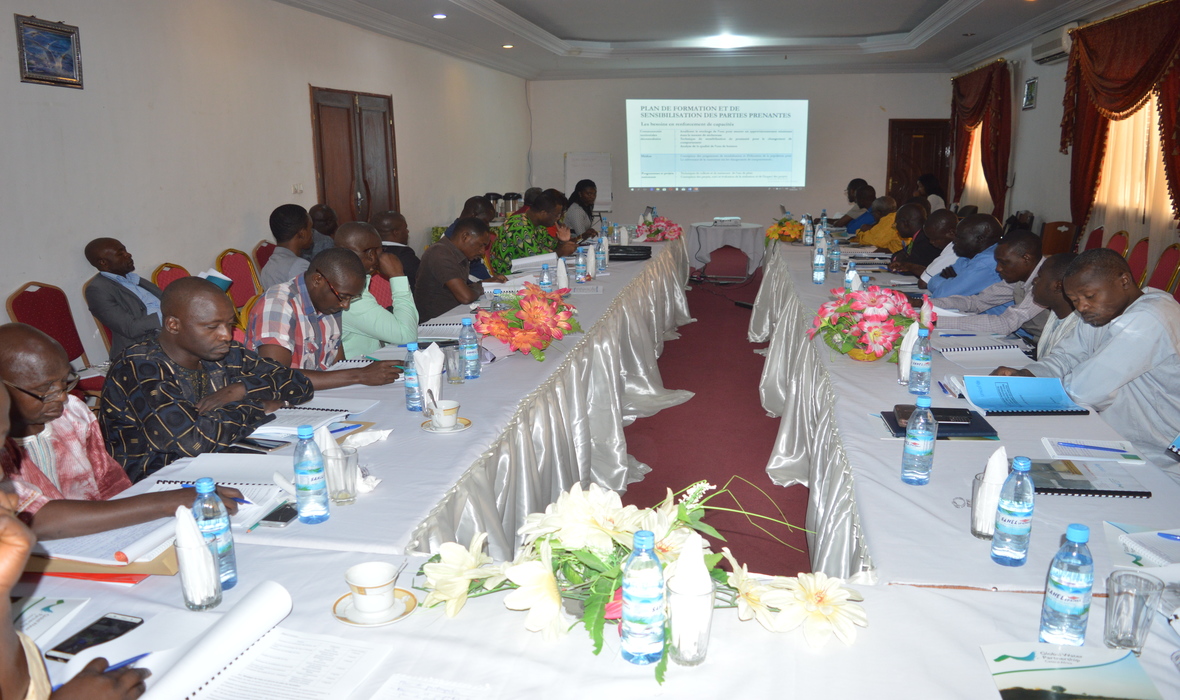To facilitate the implementation of the Strategic Plan for the Development of Water Supply, Sanitation and Sanitation Services (WASH) Resilient to Climate Change, UNICEF Cameroon and GWP Cameroon have agreed to support the conduct of resilience pilot activities for WASH services in the Lake Chad basin region of Cameroon. In this light, the GWP Cameroon proposed a project titled "Improving the resilience of WASH services in the Mayo Tsanaga sub-basin through pilot initiatives", which aims to develop tools and build the capacity of key stakeholders to ensure the sustainability of WASH infrastructure and services. As part of this project, two priority studies were initiated in November 2017. These include (1) the study on vulnerability of WASH services and identification of resilience measures and (2) the study on analysis of WASH stakeholders and their capacity building needs.
The process of implementing these studies included the organization of validation workshops to approve the consultant’s preliminary reports with key stakeholders in the WASH and Climate Change sectors. Following the receipt of those reports in January 2018, a workshop was organized in Maroua, Cameroon, under the direction of the Regional Delegate of MINEE from 07 to 08 February 2018. The workshop aimed to proceed with the technical validation of the reports of studies on the vulnerability of WASH services, and on stakeholder analysis and assessment of their capacity building needs.
The workshop was attended by 40 participants from decentralized departments of ministries, decentralized territorial authorities, academic and research institutions, technical and financial partners, international NGOs, civil society organizations, and the private sector. According to Mr René HAIWANG, MINEE's regional delegate for the Far North, the project «came at a time when the consequences of the latest manifestations of climatic hazards are still fresh in our memories ". For Mr. Wally BADIANE, Head of the UNICEF Maroua Office, "improving resilience, which is simply the ability to face difficult situations, is the only real lever to guarantee better living conditions for populations and an environment favourable to the integral development of children. ».
The workshop consisted of presentations and group work, which allowed participants to enrich and improve the reports of the studies. To highlight the importance of the workshop, Mr. Wally BADIANE, Chief of the UNICEF Maroua Office, said, “We invite you to support the GWP in the implementation of this project. The results will be used to ensure the resilience of populations to the negative consequences of climate change.” The participant’s contributions led to recommendations that will be taken into account in the finalization of these reports. Once the reports have been finalized, the technical working group of the Project, set up by the Regional Delegate, will validate these study reports. At the end of the workshop, UNICEF and GWP thanked all participants for their presence and their active and productive participation.
In the near future, these validated reports will enable us to understand the vulnerability of WASH infrastructures and identify resilience measures, as well as develop training modules and train the strategic stakeholders of the mayo Tsanaga watershed on the needs identified during the studies. This is to contribute effectively to the resilience of WASH services to climate change.
